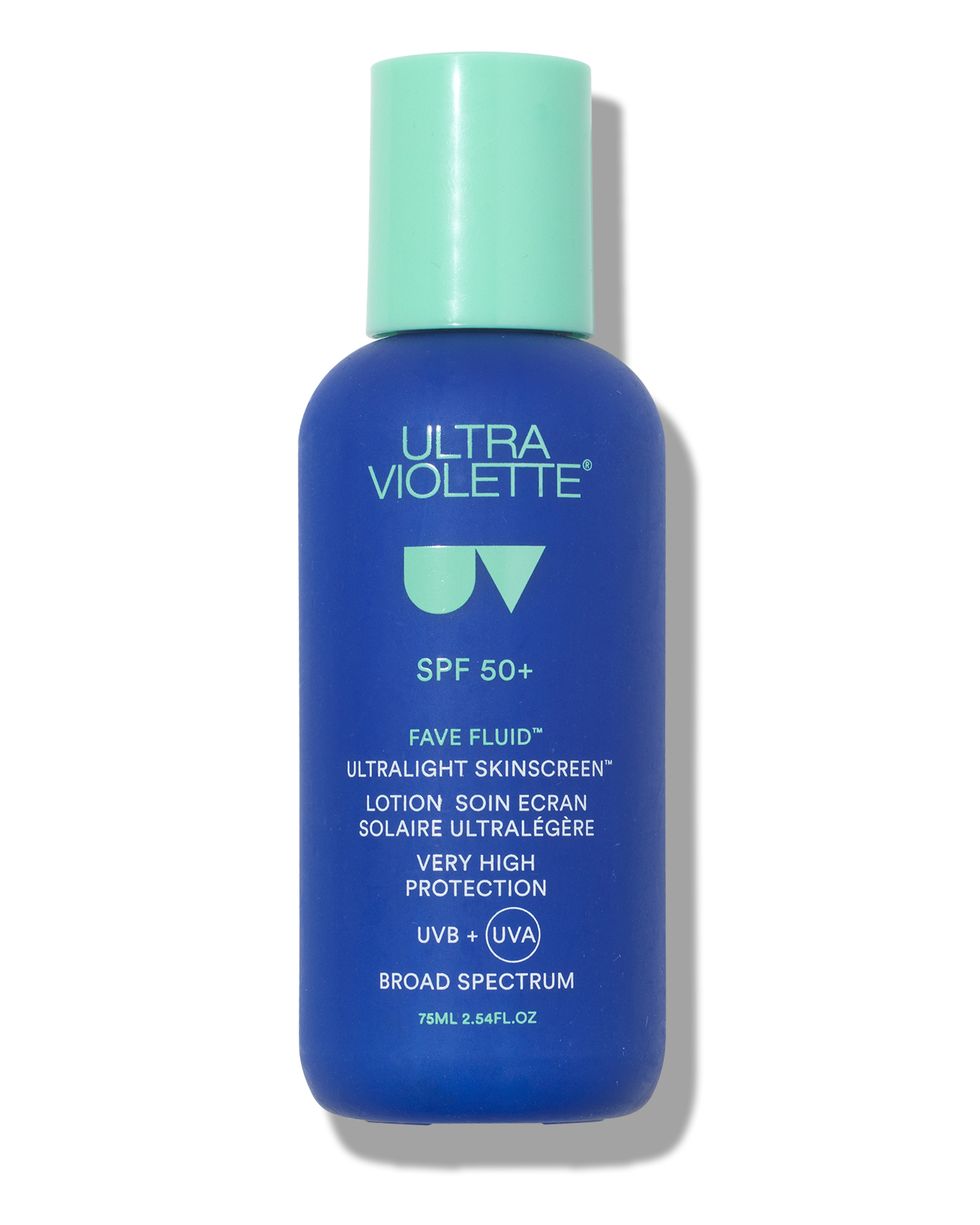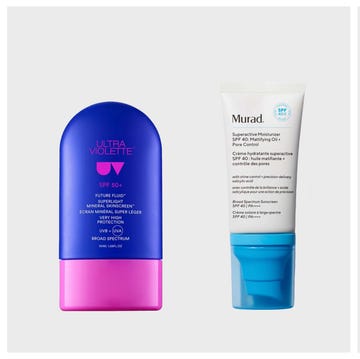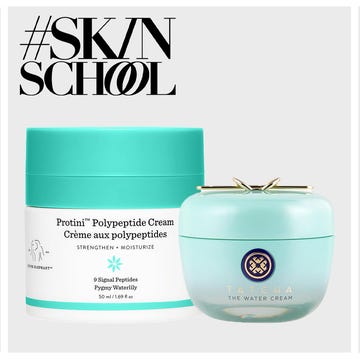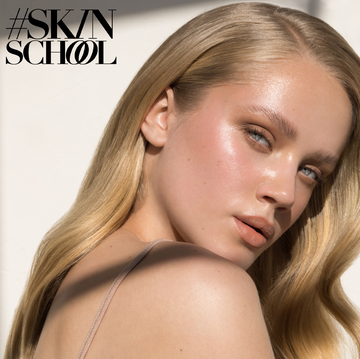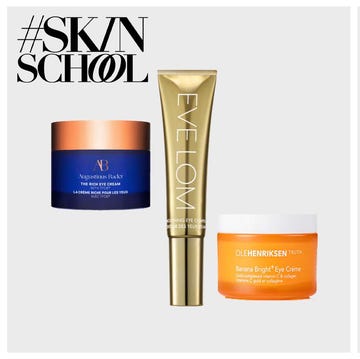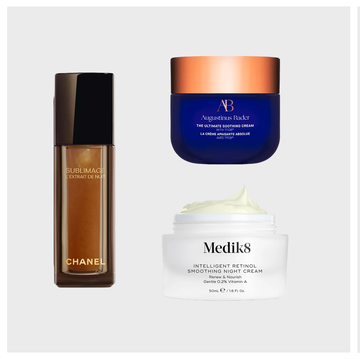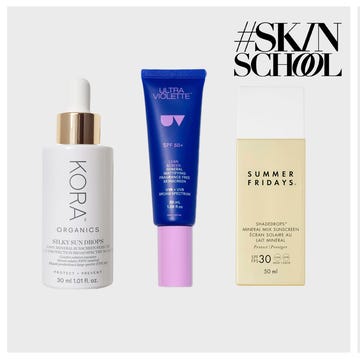We earn a commission for products purchased through some links in this article.

The 10 best SPFs for oily skin
Plus, experts explain whether sunscreen causes spots, and the right way to use it to minimise breakouts
Sunscreen is imperative all year long but as we transition into spring, it's more important than ever to be diligent with your sun protection. Thankfully, there really is a formula for everyone.
Korean sunscreens are famed for their elegant textures, while Australian SPFs have set a gold-standard for high-quality ingredients and rigorous testing. Moisturisers with SPF have never been more popular (especially for daily use) and on holiday, a good SPF oil will offer protection and a dewy gleam.
Best sunscreens for oily complexions
However, finding the best SPF for oily skin can be a tricky task – especially for those who are scarred by the thick, heavy formulas of yesteryear. There are, however, plenty of modern SPFs that cater to grease-prone skin types, so fear not.
Meet the experts
- Dr Alexis Granite, consultant dermatologist and founder of Joonbyrd bodycare
- Dr Anjali Mahto, consultant dermatologist at SELF London
- Dr Dennis Gross, board-certified dermatologist and co-founder of Dr Dennis Gross skincare
Can sunscreen actually cause breakouts?
Yes, but it's not exclusively the sun filters themselves. Rather, specific ingredients that are added to the formula. "Some sunscreens contain heavier oils and emollients that can cause congestion and worsen breakouts," explains consultant dermatologist Dr Alexis Granite. "For this reason it’s especially important to use a sunscreen specifically formulated for facial skin, not the body, as these will be lighter and less comedogenic [pore-clogging]."
Consultant dermatologist Dr Anjali Mahto echoes this, adding: "Sunscreens with a rich, greasy texture can also exacerbate oiliness, leading to clogged pores and acne," she explains. "Additionally, some sunscreens contain fragrances and/or alcohol, which can irritate sensitive skin and trigger inflammation, potentially worsening breakouts in some people."
That's not to demonise these specific ingredients, but if your skin is reactive to them, it is best to seek out alternatives.
Does oily skin need SPF?
No matter your skin tone or type, sunscreen is the most important step in your skincare routine as it functions as more than just a beauty product – it's also the skin's shield against potential skin cancer, so don't forget to apply on lips and harder to reach areas.
While vitamin D and sunlight is imperative for our health and body, the NHS cautions that there is no safe way to naturally tan and advises that SPF should be worn in the daytime. "The sun is our skin’s worst enemy when it comes to skin cancer, damage, and premature ageing — this is why wearing an SPF every day is so important," says board-certified dermatologist Dr Dennis Gross. "Even if you have oily skin, daily SPF is crucial to protect against UV damage."
What to look for in a sunscreen for oily skin
Oil-free formulations are always a good idea, as are those labelled non-comedogenic. "Serums, sprays and gels are particularly good textures to trial for oily skin types," suggests Dr Granite. Mineral sunscreens are also generally recommended for acne and oil-prone complexions as they uses zinc oxide and titanium dioxide, ingredients that tend to play well with oily and acne-prone skin.
Historically, mineral SPFs have been known to leave behind a white or grey cast, but there are new-gen mineral sunscreens that don't as they opt for much smaller zinc particles. Just bear in mind that you might need to spend a few more seconds massaging in the product.
"Lightweight, gel-based or water-based formulas, which won’t clog pores or leave a greasy residue are better suited to oily skin types rather than thick, heavy, creamy textures," adds Dr Mahto. "You can also look for sunscreens with additional ingredients that will benefit oily skin such as niacinamide. This can help regulate oil production and calm inflammation, making them a good choice for acne-prone skin."
Ultra-light hydrators such as low-molecular weight hyaluronic acid and glycerin will also deliver plumpness and comfort without clogging pores.
How to care for oily skin
Beyond finding the right formula, do consider the rest of your skincare routine as your sunscreen may not be the only culprit behind breakouts.
Personally, as a beauty editor with oily and acne-prone skin, I find that using a moisturiser with SPF is best – instead of layering two different products. It gives enough hydration, skincare benefits and protection. In the winter, or when I need extra moisture, I'll simply layer a hydrating serum underneath. Properly double cleansing in the evening is also key to ensuring your pores are clarified.
Dr Gross seconds this. "Taking time to properly cleanse will ensure that the skin is free of dirt, debris, SPF, and make-up. Look for a cleanser with alpha and beta hydroxy acids, which will loosen the glue that holds dead skin cells to the new ones underneath," he says.
If your preference is for a separate day cream and SPF, heed Dr Mahto's advice and opt for a lightweight moisturiser for oily skin that won't contribute to excess sebum, and see our list of non-clogging SPFs below.
The best, Bazaar-approved SPFs for oily skin

